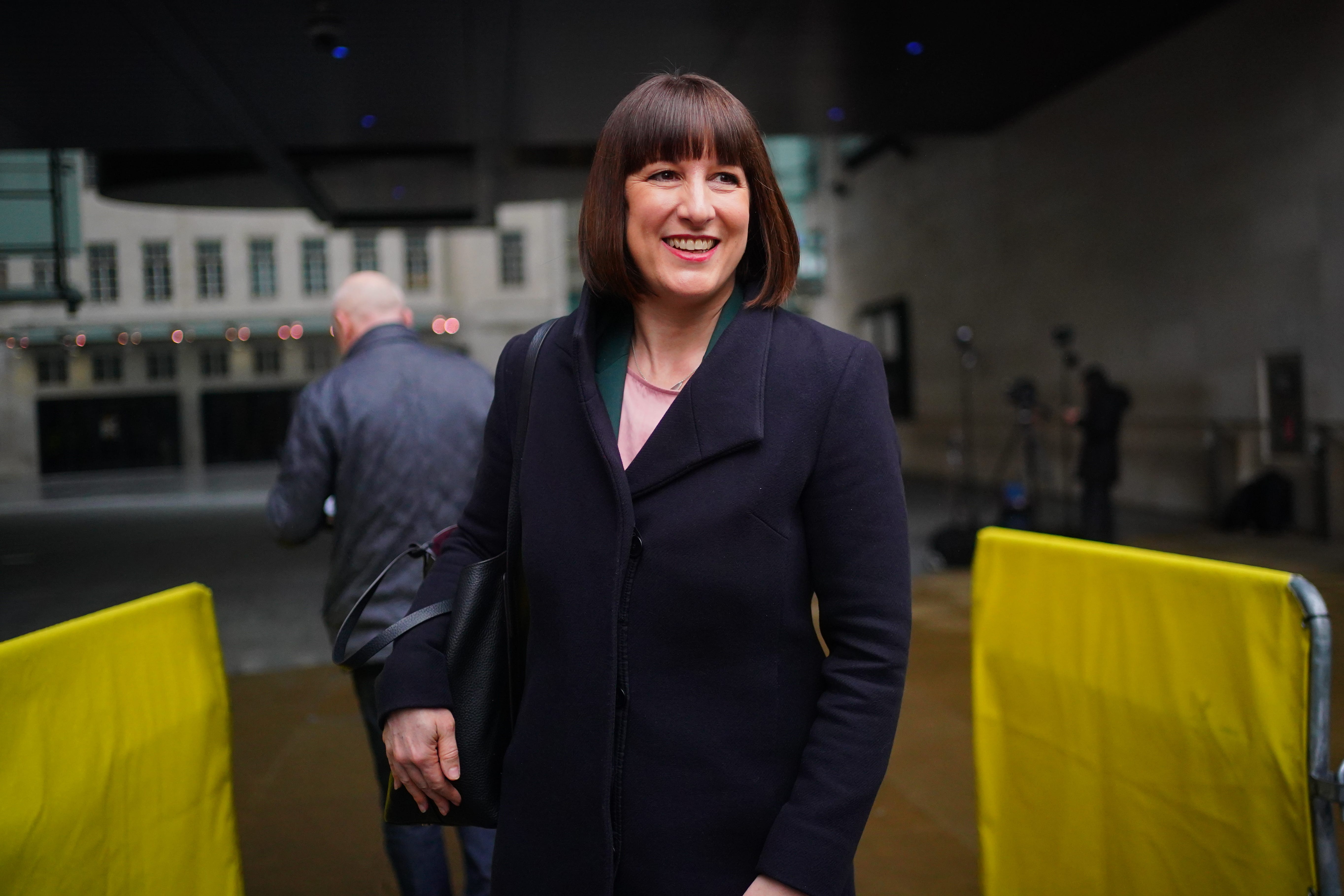Why Rachel Reeves is channelling her inner Maggie Thatcher to win votes
As the shadow chancellor delivers a big speech claiming Thatcher’s mantle, John Rentoul reveals why she and Keir Starmer are so obsessed with the Iron Lady


Rachel Reeves avoided anything as crude as making a direct comparison, but the advance publicity for her Mais lecture (the landmark political speech for chancellors) included a passage that began with the words, “As we did at the end of the 1970s, we stand at an inflection point…”
In other words, I am the new Iron Lady and I will save the failing British economy from the malaise of the past decade or more. She rejects “managed decline” and pledges to “fashion a new economic settlement” to restore growth and prosperity.
The Conservative press could read the code. She was rewarded with the front-page lead story in The Daily Telegraph this morning: “Reeves: Britain faces 1979 moment.” And a prominent story in The Times: “Rachel Reeves channels Margaret Thatcher in City of London speech.”
Job done, and you can see why she wants to be compared to the Tory icon. Just as you can see why Keir Starmer recently praised her. The Labour leader wrote in The Sunday Telegraph in December that Thatcher had “sought to drag Britain out of its stupor by setting loose our natural entrepreneurialism”. This echo of the Iron Lady will alienate the left as well as tempt the centrist rights, who Reeves is playing to.
Reeves and Starmer are pitching for the kind of voters who switched from Labour to Tory last time. For many of them, Thatcher is a semi-mythical figure associated with strength and a turning point in economic history. So Reeves as the Iron Lady reinforces Labour’s unexpected opinion-poll lead as the party most trusted on the economy – a lead kindly donated by the Tory turmoil of the past few years.
Not that Reeves is endorsing “Thatcherism”, one of the rudest words in the internal Labour lexicon. Perish the thought. She is offering, as Tony Blair did, to balance the good things that Thatcher did with the even better things that a Labour government with a social conscience can offer. Indeed, one line in Reeves’s speech explicitly rejected the Thatcher model: “Unlike the 1980s, growth in the years to come must be broad-based, inclusive, and resilient.”
The same is true of the phrase “active government”, and the policies behind it of a publicly owned energy company and a national wealth fund.
Thus her bid to be the new Iron Lady is balanced by her simultaneous attempt to be the new Gordon Brown: the iron chancellor, the rock of reassurance combined with a passion for social justice.
This is the sort of presentational trick you can get away with when your party is 20 points ahead in the opinion polls and the press – even much of the Tory press – is looking forward to a change of government.
In normal circumstances, the press might think that trying to be the new Thatcher and the new Brown at the same time made no sense, and that Reeves’s speech amounted to a jumble of contradictory signalling, concealing thin policies and a desperate attempt to play safe. The challenge for Reeves and Starmer is that Thatcher was an instinctive politician – everyone knew what she stood for. The Labour duo will have to step up to the mark. They may find it difficult to be seen as the same in voters’ eyes.
If Labour and the Tories were level in the polls, more questions might be asked about whether “securonomics” means anything. The central theme of Reeves’s Mais lecture, boosting growth, might be portrayed as promising a Liz Truss “dash for growth” without a Liz Truss market meltdown.
At other times, more attention might have been paid to another speech delivered today, by Ed Miliband, the shadow energy secretary. He and Reeves took part in a joint meeting with renewable power companies last week that resulted in a Labour Party video of the two of them side by side, like Blair and Brown at their most mutually hostile.
Today, Miliband put a brave face on Reeves’s junking of his investment budget of £28bn a year. “If I can put it this way,” he said, “if Labour’s leader from 2014 had travelled forward a decade, he would have compared today’s policy agenda very favourably with the offer he was making back then.”
This sounded like protesting too much, on a day when the National Grid said that Labour’s plan to decarbonise UK electricity by 2030 was not possible, and that any attempt to go faster than the current plan for 2035 would impose costs on consumers. A spokesperson for Miliband responded with jaw-jutting defiance but no policy detail: “We said 2030 for decarbonising the grid and we meant it.”
These awkward questions are not far below the surface of Labour’s spin operation. Jason Cowley, the sympathetic editor of the New Statesman, this week asked of Reeves’s policy: “Is it anything more than an exercise in wishful thinking, Bidenism without money and the mighty dollar?”
Could it be that her blizzard of words and channelling Maggie are ways of concealing the hole in her plan to boost investment at a time when she is so scared of even hinting at tax rises? “Inclusive Thatcherism” sounds like wishful thinking. Will it hold together until the election?






Join our commenting forum
Join thought-provoking conversations, follow other Independent readers and see their replies
Comments